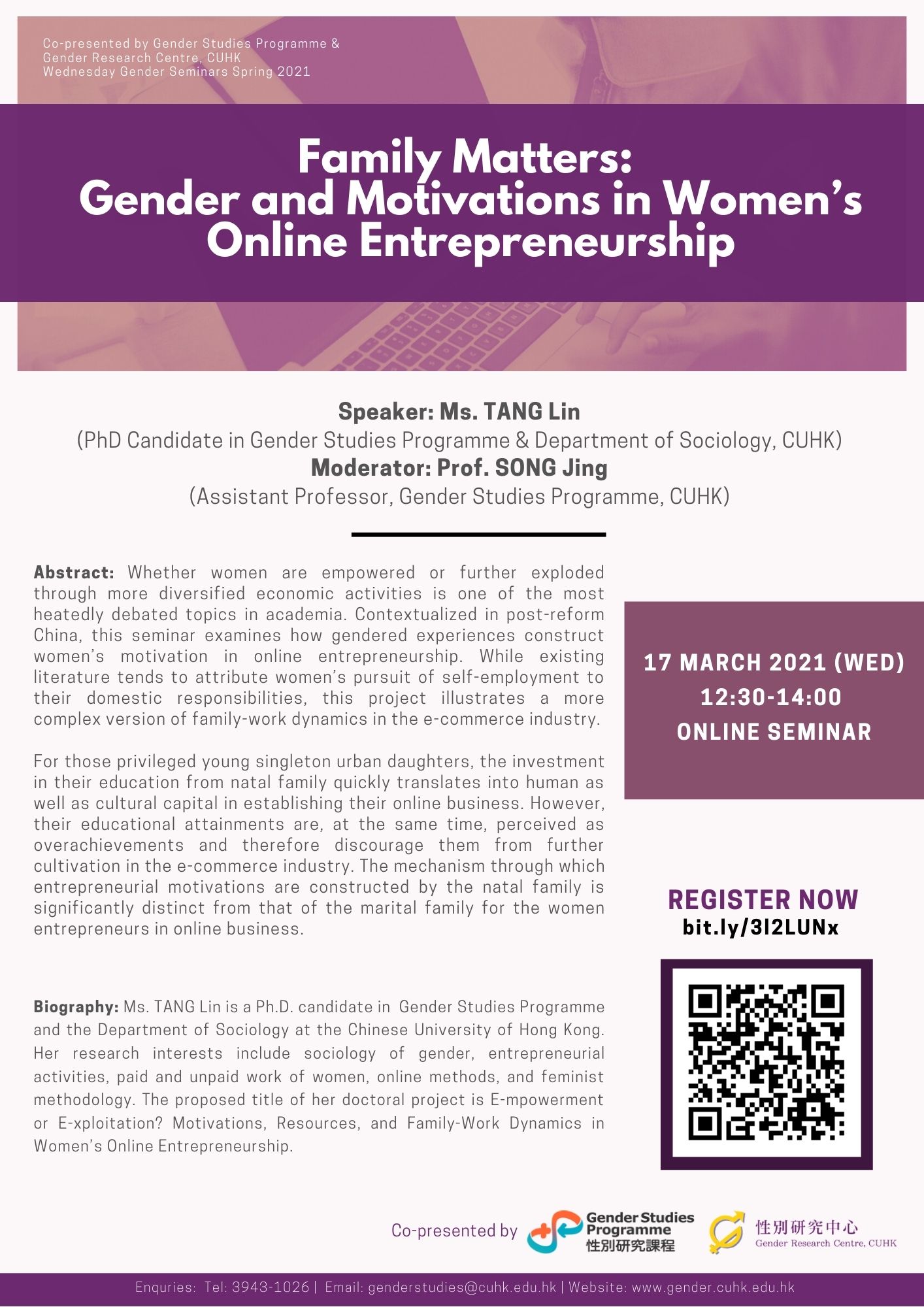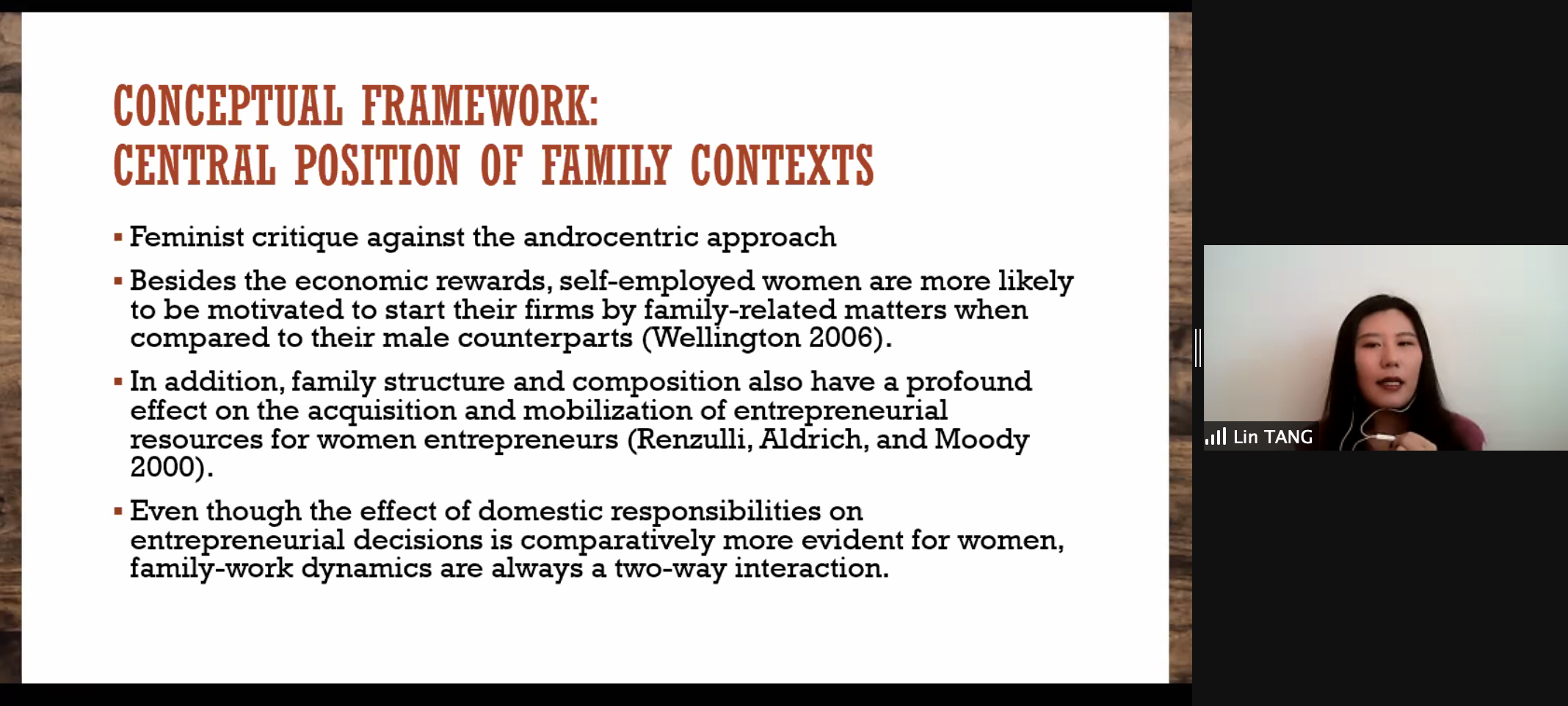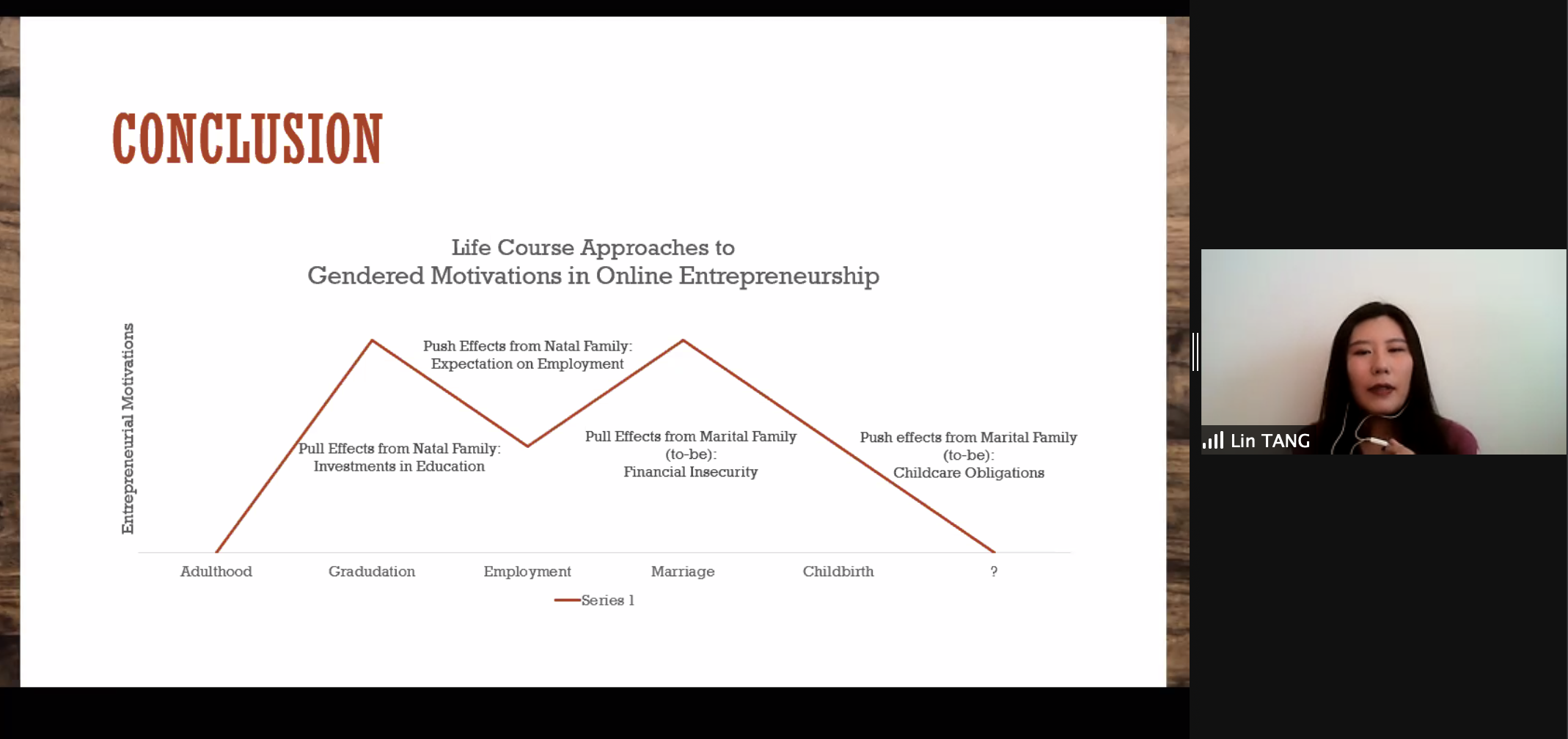In the Wednesday Seminar of March 17, 2021, Ms. TANG Lin, a Ph.D. candidate in Gender Studies Programme and the Department of Sociology at the Chinese University of Hong Kong, shared her ongoing Ph.D. research on how gendered experiences in relation to the family institution construct women’s motivations in online entrepreneurship in China.
The fast development of the Internet in the past decade has witnessed Chinese women’s greater participation in E-commerce compared to men. More than 50% of the business owners on Taobao are female (AliResearch 2015), and more than 70 % of the individual WeChat sellers are female (Xinmin Evening News 2017). In regard to entrepreneurial motivations, previous studies suggest while men are more economic oriented, women are more achievement-oriented and family-oriented. Women are more likely to venture into family-related businesses. Moreover, family-work dynamics are always important factors impacting women’s entrepreneurship. Family structure and composition also have a profound effect on the acquisition and mobilization of entrepreneurial resources for women entrepreneurs.
By in-depth interview and online ethnography, Ms. Tang Lin examined in her research women’s entrepreneurial experiences in relation to both their natal family and marital family The research subjects are mostly from a more privileged group: those well-educated young women who are the only child in their natal family and live in the more affluent eastern and southern coastal areas. A life-course perspective honoring four significant life events, namely university graduation, formal employment, cohabitation or marriage, and childbirth was adopted to offer a more dynamics-sensitive and multi-dimensional analysis on the comparatively high percentage of women’s participation in online entrepreneurship.
By using “pull” and “push” to structure her analysis, Ms. Tang Lin pointed out two pairs of effects to pull those privileged young women into online entrepreneurship or push them out from it, during the transition of their status. As urban singleton daughters, they were initially pulled into online entrepreneurship when they were graduating from their postgraduate programs. Becoming a dài-goù, namely doing surrogate shopping for others, was regarded as a spontaneous move to make up for their parents’ investments in their overseas tertiary education. However, after they graduated and came back to their hometown, the social expectation of stable and ideal jobs — such as public servants, teachers, administrative staff — for women started to push them out from online entrepreneurship. As they and their parents perceived, online entrepreneurship could only be a temporal and transitional option.
If the first pair of pull-push effects happened in their natal families, the second pair of effects emerged in their marital family or marital family-to-be. When they started cohabitating with their marital partners, they could be pulled into online entrepreneurship to make extra money, especially when their partners were financially insecure. However, the motivation of online entrepreneurship had nothing to do with women’s empowerment. Although some of their marital partners would do pep talks or offer physical supports to help them run their online business, the aim was pretty much materialistic. Once they got pregnant and had their own children, childcare obligations would push them out from online entrepreneurship. As Ms. Tang Lin observed, their motivation for online entrepreneurship decreased dramatically in this life event. For those who still insisted on, they had to juggle between paid work in the household and their online economic activities.
Written by:
Peng Yiyi & Wu Yuehan, PhD candidates of Gender Studies, CUHK
Marco Teng Wang, student of PhD in Linguistics, Hong Kong Baptist University





A
A
A
Contact Us